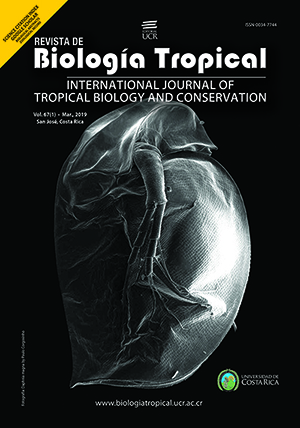Abstract
Phyllomedusa azurea is a frog species well distributed geographically in South America, including Brazilian biomes as Pantanal and Cerrado. Compared with other anurans from the Phyllomedusinae family, there are few reports on the bioactive potential of skin-derived molecules from this species. In this perspective, the aim of the present study was to evaluate the in vitro antibacterial activity of skin secretion of P. azurea by detection of Minimum Inhibitory Concentration (MIC) of the growth of bacterial indicator strains and to determine if occurs a changing in the bacterial cell envelope permeability. The MIC determination was carried out by the microdilution plate method. The absorbance was measured and analyzed statistically using the t-test to compare two groups (0.05 % of significance). The impact of the crude extract on cell envelope permeability of Staphylococcus aureus ATCC 25923 was conducted by the crystal violet assay, and the absorbance was measured spectrophotometry followed by the calculation of the crystal violet uptake percentage. The specific MIC for S. aureus ATCC 25923 and Escherichia coli ATCC 25922 was 31.25 µg/mL, while for Bacillus subtilis ATCC 6633 was 125 µg/mL and Pseudomonas aeruginosa ATCC 27853 was 250 µg/mL. The treatment with crescent concentrations of frog skin secretion increased the crystal violet uptake by S. aureus ATCC 25923 cells, suggesting an action on the cell plasma membrane. The results demonstrated that the skin secretion of P. azurea presents antibacterial activity and merit further investigations to characterize the bioactive molecules.
##plugins.facebook.comentarios##

This work is licensed under a Creative Commons Attribution 4.0 International License.
Copyright (c) 2019 Daniela Andrade de Almeida, Jefferson do Carmo Dietz, Bruno Francesco Rodrigues de Oliveira, José Daniel Gonçalves Vieira, Marta Regina Magalhães, Rosália Santos Amorim Jesuíno






